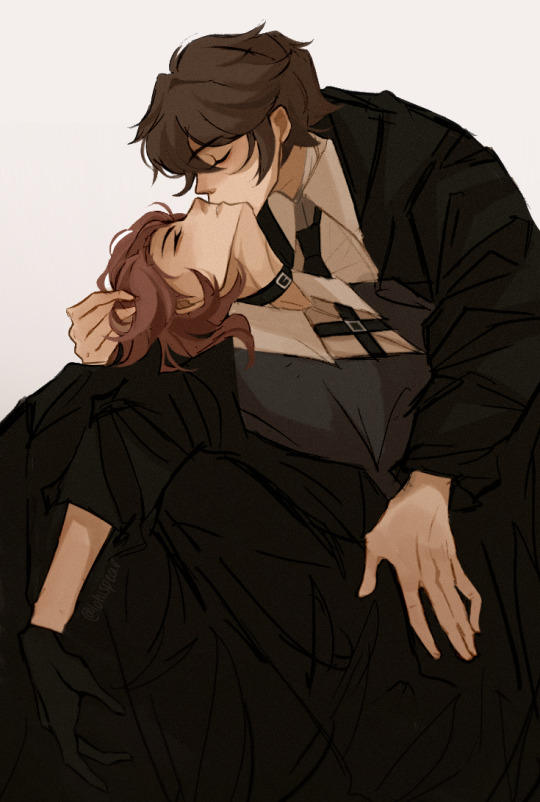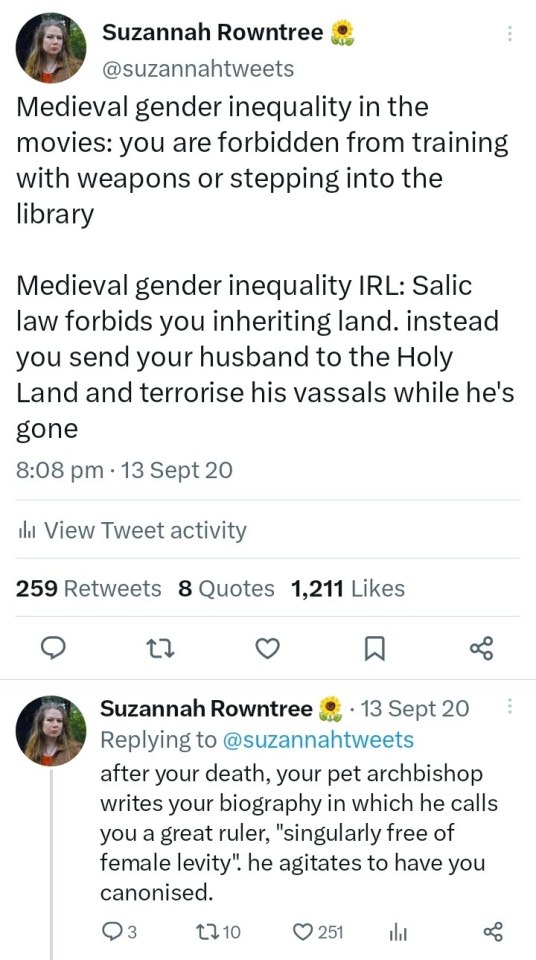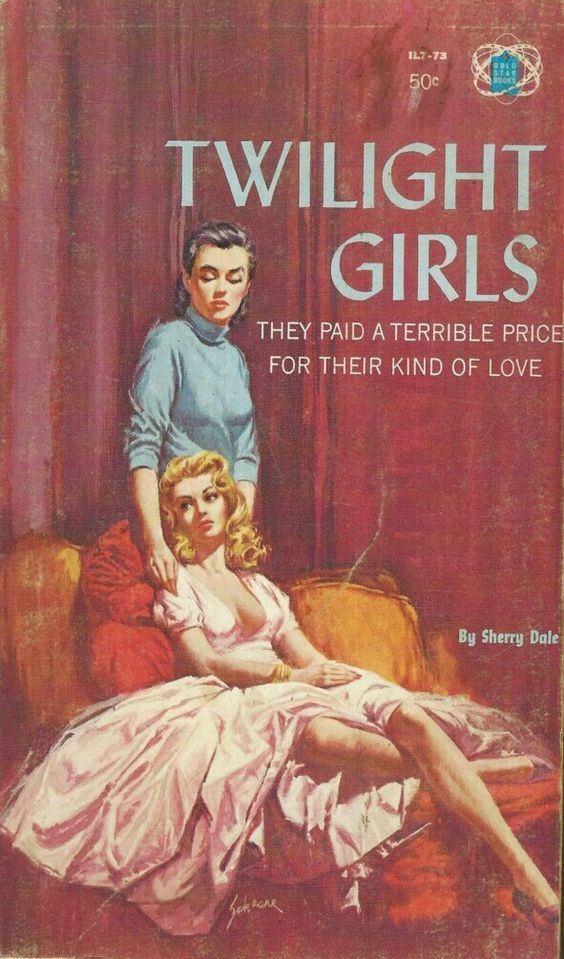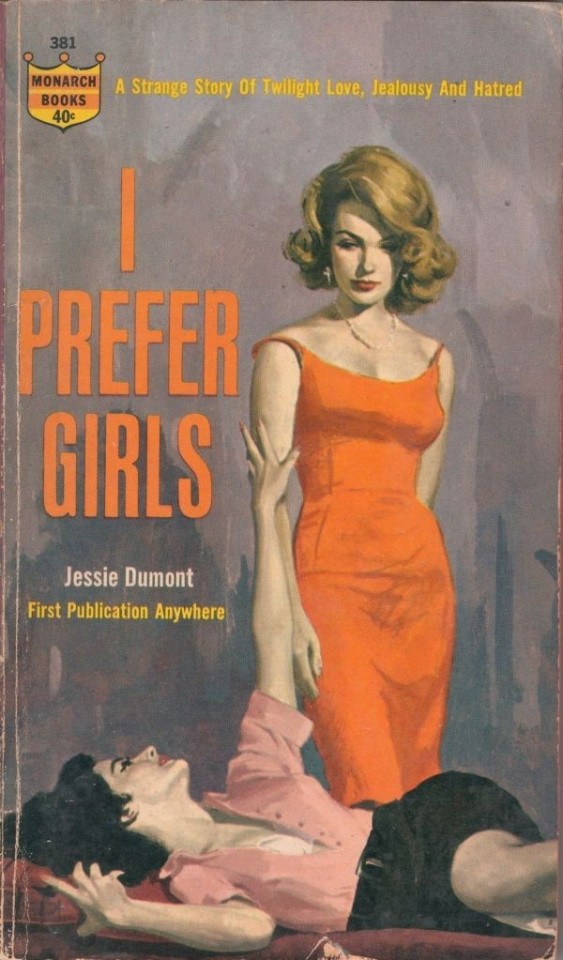#history fiction
Text
I just finished reading Last Night at the Telegraph Club!
I don't even know where to begin, this was honestly such a great and relatable book. I loved almost every second of it, except the chapters named like "Grace - 3 years earlier", I always had to fight through those because I wanted to know what would happen with Lily and Kath. And honestly I'm glad I did read those chapters. Even though I had to fight through them, some moments were quite "free", I don't know how else to explain. I remember when after Lily's aunt had taken her to a Planetarium, and after it was over her aunt demonstrated how high a person could jump on the moon. That scene really felt so freeing, I still can't get over it.
Overall, this book is one of my favourites. There are so many more moments I liked, but I'm not gonna write them here. I also have so many pages highlighted because they're honestly so good!
Anyways, I would recommend this to people who like history fiction, wlw books and I suppose maybe books about rebellion.
13 notes
·
View notes
Text
when people writing fiction set in the middle ages start writing about witchcraft accusations and are clearly only familiar with an early modern mindset on the subject

#this is a pre malleus maleficarum world!#witchcraft#historic witchcraft#the witchhunt#history fiction#culture is an ever changing force#your twelfth century characters are not going to be screaming for witch hunts#posts for me and me alone#history memes#i can see your lack of research#medieval misogyny was a different force from early modern misogyny#don't even get me started on how people can't tell the difference between demonological explanations#and that there must be the intention of harm!
9 notes
·
View notes
Text
[book review] My Happy Marriage, Vol. 1 by Akumi Akitogi

5⭐️/5
Started reading because of the manga, and now, we have the anime adaptation!
Feeling like a Cinderella story during Meiji (probably) with a twist of supernatural, I felt Miyo was the most miserable Cinderella I had ever read. And the horrible people around her, especially her father, who does nothing to protect his daughter. What kind of family is this?
As usual, the prince will come to the rescue. In this case, her fiancee. Kiyoka didn’t sit well for me at first, but he redeemed himself pretty fast. So, I am curious how they will get along in the second book.
Her sister and the uncle were a piece of shit. Let's just say that I hope all the rotten human beings will not appear in the next story. And I am happy for Miyo to get people who support and love her.
Disclaimer: All the opinion about this book is based on my personal view!
#book review#My Happy Marriage Vol. 1#Akumi Akitogi#Tsukiho Tsukioka#anime adaptation#light novel#japanese#history fiction#5/5
5 notes
·
View notes
Text
look, I know I've talked about this essay (?) before but like,
If you ever needed a good demonstration of the quote "Any sufficiently advanced technology is indistinguishable from magic", have I got an exercise for you.
Somebody made a small article explaining the basics of atomic theory but it's written in Anglish. Anglish is basically a made-up version of English where they remove any elements (words, prefixes, etc) that were originally borrowed from romance languages like french and latin, as well as greek and other foreign loanwords, keeping only those of germanic origin.
What happens is an english which is for the most part intelligible, but since a lot everyday english, and especially the scientific vocabulary, has has heavy latin and greek influence, they have to make up new words from the existing germanic-english vocabulary. For me it kind of reads super viking-ey.
Anyway when you read this article on atomic theory, in Anglish called Uncleftish Beholding, you get this text which kind of reads like a fantasy novel. Like in my mind it feels like it recontextualizes advanced scientific concepts to explain it to a viking audience from ancient times.
Even though you're familiar with the scientific ideas, because it bypasses the normal language we use for these concepts, you get a chance to examine these ideas as if you were a visitor from another civilization - and guess what, it does feel like it's about magic. It has a mythical quality to it, like it feels like a book about magic written during viking times. For me this has the same vibe as reading deep magic lore from a Robert Jordan book.
#off topic#literature#language#linguistics#science#science history#science fiction#fantasy#physics#atomic theory#anglish#chemistry#robert jordan#the wheel of time#uncleftish beholding
42K notes
·
View notes
Text
what if the UK haf never been a successful empire? what if New York had never ceased being New Amsterdam? What if the whole Canada was French? what if the entire southern US was Mexican? what if no US? what if?
1 note
·
View note
Text

soukoku as one of my dearest renaissance paintings
#instead of paying attention to the lectures in ap art history i just look at the paintings my teacher puts on the slides#and decide which ones fit my fictional pairings#i wish i remembered this one i think it was by bernini but i'm not 100% :((((((#sighhh i'll go check again if anybody wants the og#i listened to luminary by joel sunny while painting this and the vibes were ethereal i felt like i was ascending#bungou stray dogs#bungo stray dogs#bsd#dazai osamu#osamu dazai#nakahara chuuya#chuuya nakahara#soukoku#skk#lotus draws
8K notes
·
View notes
Text
#Star Wars#Mass Effect#Transformers#Destiny#Halo#Star Trek#science-fiction#lore#history#public opinion#Star Wars: Knights of The Old Republic#Mass Effect 2#Transformers: The Covenant of Primus#Destiny 2#Halo: Combat Evolved#Star Trek: Enterprise#Star Wars: The Old Republic#Mass Effect 3#Transformers: Generation 1#Halo 2#Star Trek: Voyager#Star Wars: The Clone Wars#Destiny: The Taken King#Transformers 2007#Halo 3#Star Trek: The Next Generation#Star Wars: Plagueis#Transformers: Exodus#Destiny 2: The Witch Queen#Halo Reach
9K notes
·
View notes
Text

all RIGHT:
Why You're Writing Medieval (and Medieval-Coded) Women Wrong: A RANT
(Or, For the Love of God, People, Stop Pretending Victorian Style Gender Roles Applied to All of History)
This is a problem I see alllll over the place - I'll be reading a medieval-coded book and the women will be told they aren't allowed to fight or learn or work, that they are only supposed to get married, keep house and have babies, &c &c.
If I point this out ppl will be like "yes but there was misogyny back then! women were treated terribly!" and OK. Stop right there.
By & large, what we as a culture think of as misogyny & patriarchy is the expression prevalent in Victorian times - not medieval. (And NO, this is not me blaming Victorians for their theme park version of "medieval history". This is me blaming 21st century people for being ignorant & refusing to do their homework).
Yes, there was misogyny in medieval times, but 1) in many ways it was actually markedly less severe than Victorian misogyny, tyvm - and 2) it was of a quite different type. (Disclaimer: I am speaking specifically of Frankish, Western European medieval women rather than those in other parts of the world. This applies to a lesser extent in Byzantium and I am still learning about women in the medieval Islamic world.)
So, here are the 2 vital things to remember about women when writing medieval or medieval-coded societies
FIRST. Where in Victorian times the primary axes of prejudice were gender and race - so that a male labourer had more rights than a female of the higher classes, and a middle class white man would be treated with more respect than an African or Indian dignitary - In medieval times, the primary axis of prejudice was, overwhelmingly, class. Thus, Frankish crusader knights arguably felt more solidarity with their Muslim opponents of knightly status, than they did their own peasants. Faith and age were also medieval axes of prejudice - children and young people were exploited ruthlessly, sent into war or marriage at 15 (boys) or 12 (girls). Gender was less important.
What this meant was that a medieval woman could expect - indeed demand - to be treated more or less the same way the men of her class were. Where no ancient legal obstacle existed, such as Salic law, a king's daughter could and did expect to rule, even after marriage.
Women of the knightly class could & did arm & fight - something that required a MASSIVE outlay of money, which was obviously at their discretion & disposal. See: Sichelgaita, Isabel de Conches, the unnamed women fighting in armour as knights during the Third Crusade, as recorded by Muslim chroniclers.
Tolkien's Eowyn is a great example of this medieval attitude to class trumping race: complaining that she's being told not to fight, she stresses her class: "I am of the house of Eorl & not a serving woman". She claims her rights, not as a woman, but as a member of the warrior class and the ruling family. Similarly in Renaissance Venice a doge protested the practice which saw 80% of noble women locked into convents for life: if these had been men they would have been "born to command & govern the world". Their class ought to have exempted them from discrimination on the basis of sex.
So, tip #1 for writing medieval women: remember that their class always outweighed their gender. They might be subordinate to the men within their own class, but not to those below.
SECOND. Whereas Victorians saw women's highest calling as marriage & children - the "angel in the house" ennobling & improving their men on a spiritual but rarely practical level - Medievals by contrast prized virginity/celibacy above marriage, seeing it as a way for women to transcend their sex. Often as nuns, saints, mystics; sometimes as warriors, queens, & ladies; always as businesswomen & merchants, women could & did forge their own paths in life
When Elizabeth I claimed to have "the heart & stomach of a king" & adopted the persona of the virgin queen, this was the norm she appealed to. Women could do things; they just had to prove they were Not Like Other Girls. By Elizabeth's time things were already changing: it was the Reformation that switched the ideal to marriage, & the Enlightenment that divorced femininity from reason, aggression & public life.
For more on this topic, read Katherine Hager's article "Endowed With Manly Courage: Medieval Perceptions of Women in Combat" on women who transcended gender to occupy a liminal space as warrior/virgin/saint.
So, tip #2: remember that for medieval women, wife and mother wasn't the ideal, virgin saint was the ideal. By proving yourself "not like other girls" you could gain significant autonomy & freedom.
Finally a bonus tip: if writing about medieval women, be sure to read writing on women's issues from the time so as to understand the terms in which these women spoke about & defended their ambitions. Start with Christine de Pisan.
I learned all this doing the reading for WATCHERS OF OUTREMER, my series of historical fantasy novels set in the medieval crusader states, which were dominated by strong medieval women! Book 5, THE HOUSE OF MOURNING (forthcoming 2023) will focus, to a greater extent than any other novel I've ever yet read or written, on the experience of women during the crusades - as warriors, captives, and political leaders. I can't wait to share it with you all!
#watchers of outremer#medieval history#the lady of kingdoms#the house of mourning#writing#writing fantasy#female characters#medieval women#eowyn#the lord of the rings#lotr#history#historical fiction#fantasy#writing tip#writing advice
29K notes
·
View notes
Text
quotes by Victorians about the 1920s view of their generation's women
"We are frequently told that the Victorian woman...generally behaved like a pampered and neurotic infant. This is all moonshine. I do not think that I ever saw a woman faint before I came to London in 1869, and not often after then...they enjoyed a hearty laugh, and a good many of them a contest of wits with any man." -Nineteenth Century, a Monthly Review, 1927 (written by a man born in 1850)
"What queer ideas the girl of 1929 has about the Victorian period- they are not a bit true...Marriage was by no means the end and aim of our existence. Oxford and Cambridge claimed quite a few of us after school days were over. We had great ideas about 'life' and what it all might mean to us." -St. Petersburg Times, 1929 (written by a woman born in 1853)
"True, debutantes were chaperoned at balls. But that fact did not prevent them from dancing as frequently as they chose with their favorite partners. The idea that girls in the Victorian era spent their days sewing seams and practicing scales is another fallacy." -Gettysburg Times, July 1, 1927 (quote from the Dowager Lady Raglan, Ethel Jemima Somerset, who lived from 1857 to 1940)
#history#when they were still alive to defend themselves#maybe- much as I rag on modern historical fiction -we've gotten a bit closer to the truth than our grandparents did#see this is one reason I love studying the Victorian era (besides hoarding their detritus like a dragon I mean what)#it just is One Of The Eras Of All Time in pop culture#and it means so much to so many people that getting to the real human bottom of it fascinates me#spoiler: it boils down to 'people were people and always have been'
10K notes
·
View notes
Text
I’m actually serious about this, if at all possible, right now is a very good time to request queer books from your local library. Whether they get them or not is not in your control, but it is so important to show that there is a desire for queer books. I will also say getting more queer books in libraries and supporting queer authors are pretty fantastic byproducts of any action.
This isn’t something everyone can do, but please do see if you are one of the people who has the privilege to engage in this form of activism, and if you are, leverage that privilege for all you’re worth.
For anyone who can’t think of a queer book to request, here is a little list of some queer books that I think are underrated and might not be in circulation even at larger libraries:
Refusing Compulsory Sexuality: A Black Asexual Lens on Our Sex-Obsessed Culture by Sherronda J. Brown
Silver Under Nightfall by Rin Chupeco
Harvard's Secret Court: The Savage 1920 Purge of Campus Homosexuals by William Wright
The Perks of Loving a Wallflower by Erica Ridley
God Themselves by Jae Nichelle
IRL by Tommy Pico
The Pink Line: Journeys Across the World's Queer Frontiers by Mark Gevisser
Passing Strange by Ellen Klages
The New Queer Conscience by Adam Eli
Fierce Femmes and Notorious Liars: A Dangerous Trans Girl's Confabulous Memoir by Kai Cheng Thom
Queering the Tarot by Cassandra Snow
Wash Day Diaries by Jamila Rowser
Queer Magic: Lgbt+ Spirituality and Culture from Around the World by Tomás Prower
Before We Were Trans: A New History of Gender by Kit Heyam
Beyond the Pale by Elana Dykewomon
Hi Honey, I'm Homo! by Matt Baume
The Deep by Rivers Solomon
Homie: Poems by Danez Smith
The Secret Life of Church Ladies by Deesha Philyaw
The Companion by E.E. Ottoman
Kapaemahu by Dean Hamer, Joe Wilson, Hinaleimoana Wong-Kalu
Sacrament of Bodies by Romeo Oriogun
Witching Moon by Poppy Woods
Tell Me I'm Worthless by Alison Rumfitt
Dead Collections by Isaac Fellman
Disintegrate/Dissociate by Arielle Twist
Dear Senthuran: A Black Spirit Memoir by Akwaeke Emezi
Peaches and Honey by Imogen Markwell-Tweed
Nepantla: An Anthology Dedicated to Queer Poets of Color by Christopher Soto
#queer books#queer history#lgbt history#honestly#libraries are a massive resource in terms of preserving and uplifting marginalized narratives#and as a community#that has been so very excluded from both fictional and nonfictional narratives#this is a great way to reclaim and care for the stories that have been surpressed for so long
11K notes
·
View notes
Text
The reason it's so difficult to get a handle on the history and development of interactive fiction is that we're never going to be working with a complete picture until we're prepared to acknowledge the vital role in that history of all the weird porn.
7K notes
·
View notes
Text
STAR TREK premiered on NBC on this day in 1966.
3K notes
·
View notes
Note
Hi I was wondering if you know of any good resources to get good vintage names that aren’t typical and boring (Fred, Edward, Alfred etc)?
Some of the names in the Santa letters are certainly peculiar and it made me wonder what kind of names those “vintage baby names” lists are leaving out 😜
Thanks! And happy new year 🎊
One place to get a good general overview of what names were like in a certain era is the Social Security Administration's lists of popular names that go back to the 1880s. The further down the lists you go the less common they get. However these are still all names that had at least a few hundred occurrences, so you're not going to have any Gloyds etc..
I personally always try to find names from primary sources (newspapers, census, vital records, etc.) as you're more likely to come across unusual names that don't make the top 200 lists.
Also keep in mind that name popularity varied greatly by location. Just because there were a bunch of Juanitas in Tulsa in 1930 doesn't mean there were that many in Boston.
Honestly if anyone is working on a specific project and needs names from a certain location/era (i.e. you're writing a novel that takes place in London in 1627) feel free to message me and I'd be happy to work with you to compile a list from primary sources. I love this stuff and will use any valid excuse to spend an evening digging through 17th century baptismal records.
#if you buy me a coffee I might even make you a simple custom name generator#I do this for myself all the time because I'm a party person who really likes spreadsheets#names#history#historical fiction#writing resources#asks#@sir-sleepalot#writing reference#character names
2K notes
·
View notes
Text
Fun Fact and History Lesson!
The 'no beta we die like [character]' originated from this damn photo that went viral on Tumblr in 2016 and changed Ao3 tags and fanfic vernacular forever.

Meaning: it's a tag used on fics that were not beta read (the author didn't get someone to read it for them before posting). Betas read fics to check for spelling, grammar, consistently, etc and often edit it.
*
Similarly, 'Dead dove' or 'dead dove do not eat' is from this scene in Arrested Development.

Meaning: if there's a warning of something really dark/bad, don't open/read it and expect something different. Or: 'mind the tags this is dark, don't read if you don't like it'.
#fanfiction#fandom#fan fiction vernacular#internet history lesson if you will#dont know how to tag this#im so old because i was there#feel free to fact check on known your meme if you dont believe me
4K notes
·
View notes
Text




lesbian pulp fiction from the 1950s
#lesbian#lesbians#lesbian pulp fiction#pulp fiction#lesbian politics#lesbian history#queer art history#lesbian art#lesbian art history#queer history#gay history#lgbt#aesthetic#dark academia#academia#light academia#academia aesthetic#literature#wlw#feminism
10K notes
·
View notes
Text
Non-offensive Historical terms for Black people in historical fiction
@pleasespellchimerical asked:
So writing historical fiction, with a white POV character. I'm not sure how to address race in the narration. I do have a Black main character, and I feel like it'd feel out of place to have the narrator refer to her as 'Black', that being a more modern term. Not sure how to do this without dipping into common historical terms that are considered racist today. Thoughts on how to handle this delicately, not pull readers out of the narrative? (fwiw, the POV character has a lot of respect for the Black character. The narration should show this)
There are non-offensive terms you can use, even in historical fiction. We can absolutely refer to Black people without slurs, and if slurs is all one can come up with, it’s time to go back to the drawing board. I cannot say which terms are best for your piece without knowing the time period, but hopefully the list below helps.
Historical terms to use for Black people (non-offensive)
African American documented as early as 1782 (documented in an ad in the Pennsylvania Journal). Note the identity isn’t accurate for non-American Black people.
African could refer to African people or “from 1722 as ‘of or pertaining to black Americans.’”
The place of origin could also be used. For example, “a Nigerian woman”
Africo-American documented as early as 1788.
People of Color documented as early as 1796 (with specific contexts, usually mixed people)
Afro American documented as early as 1817, 1831 (depending on source)
Black American documented as early as 1831
Black was used in Old English to refer to dark-skinned people. Black was not capitalized until recent years, so “She was a young black woman.” would make sense to say, though “She was a young Black woman.” is the better standard today, although not universally adopted. I personally prefer it capitalized.
Moor was used as early as the late 1400s for North African people, but had a somewhat flexible use where anyone visibly Black / Of African descent or the Afro Diaspora might be referred to or assumed as a Moor. Note, it has other meanings too, such as referring to Muslim people, but that doesn’t mean the person using it is going by the dictionary definition. Not really the way to go today, but okay in a historical setting (in my opinion).
Biracial (1860s), mixed race (1872), multiracial (1903) and multicultural (1940s) are also terms to refer to people of two or more races.
Occupation + description. Throughout history, many people have been referred to as their occupation. For example, the Carpenter, The Baker, the Blacksmith. Here’s an example of how you might go about using occupation and traits to identify a Black character in history. Here’s an example I came up with on the fly.
“You should go by Jerry’s. He’s the best blacksmith this town’s ever seen. Ya know, the real tall, dark-skinned, curly haired fellow. Family’s come here from Liberia.”
Offensive and less-sensitive terms for Black people
Blacks was used in plural more, but this is generally offensive today (Even writing it gives me **Thee ick*)
Colored was mostly used post-civil war until the mid 20th century, when it became unacceptable. This is not to be conflated with the South African Coloured ethnic group.
Negro/Negroes were also used as early as the 1550s. Capitalization became common in the early 20th century. I'm sure you know it is offensive today, though, admittedly, was not generally seen as such until around the 1960s, when Black replaced it. It does have its contexts, such as the trope “The Magical Negro” but going around using the term or calling someone that today is a lot different.
Mulatto referred to mixed people, generally Black and white, and is offensive today.
The N-word, in all its forms, is explicitly a slur, and there is absolutely no need to use it, especially in a casual manner, in your story. We’ve written about handling the N-word and alluding to it “if need be” but there are other ways to show racism and tension without dropping the word willy-nilly.
Deciding what to use, a modern perspective
I’m in favor of authors relying on the less offensive, more acceptable terms. Particularly, authors outside of the race. Seldom use the offensive terms except from actual direct quotes.
You do not have to use those offensive terms or could at least avoid using them in excess. I know quite famous stories do, but that doesn’t mean we have to so eagerly go that route today. Honestly, from teachers to school, and fellow non-Black students, it’s the modern day glee that people seem to get when they “get a chance to say it” that makes it worse and also makes me not want to give people the chance.
It goes back to historical accuracy only counting the most for an “authentic experience” when it means being able to use offensive terms or exclude BIPOC from stories. We’ve got to ask ourselves why we want to plaster certain words everywhere for the sake of accuracy when there are other just as accurate, acceptable words to use that hurt less people.
Disclaimer: Opinions may vary on these matters. But just because someone from the group cosigns something by stating they’re not offended by it, doesn’t mean a whole lot of others are okay with it and their perspectives are now invalid! Also, of course, how one handles the use of these words as a Black person has a different connotation and freedom on how they use them.
~Mod Colette
The colonial context
Since no country was mentioned, I’m going to add a bit about the vocabulary surrounding Black people during slavery, especially in the Caribbean. Although, Colette adds, if your Black characters are slaves, this begs the question why we always gotta be slaves.
At the time, there were words used to describe people based on the percentage of Black blood they had. Those are words you may find during your searches but I advise you not to use them. As you will realize if you dive a bit into this system, it looks like a classifying table. At the time, people were trying to lighten their descent and those words were used for some as a sort of rank. Louisiana being French for a time, those expressions were also seen there until the end of the 19th century.
The fractions I use were the number of Black ancestors someone had to have to be called accordingly.
Short-list here :
½ : mûlatre or mulatto
¼ or ⅛ : quarteron or métis (depending on the island, I’m thinking about Saint-Domingue, Martinique and Guadeloupe)
1/16 : mamelouk
¾ : griffe or capre
⅞ : sacatra
In Saint-Domingue, it could go down to 1/64, where people were considered sang-mêlé (mixed blood for literal translation, but “HP and the Half-Blood Prince” is translated “HP et le Prince de Sang-Mêlé” in French, so I guess this is another translation possibility).
-Lydie
Use the 3rd person narrative to your advantage
If you are intent on illustrating historical changes in terminology consider something as simple as showing the contrast between using “black” for first person character narration, but “Black” for 3rd person narrator omniscient.
-Marika
Add a disclaimer
I liked how this was addressed in the new American Girl books
it’s set in Harlem in the 1920’s and there’s a paragraph at the beginning that says “this book uses the common language of the time period and it’s not appropriate to use now”
-SK
More reading:
NYT: Use of ‘African-American’ Dates to Nation’s Early Days
The Etymology dictionary - great resource for historical fiction
Wikipedia: Person of Color
2K notes
·
View notes